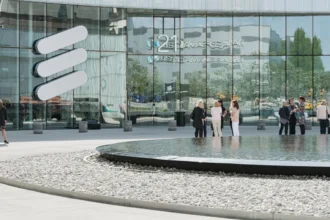At FinancialMediaGuide, we note that Jaguar Land Rover’s (JLR) decision to partially resume operations after a six-week shutdown is more than just a sign of recovery – it’s a clear indicator of how dependent Britain’s industrial base has become on digital infrastructure and global supply chains. The incident, which experts have already called one of the most disruptive cyberattacks in recent years, has underscored how thin the line is between resilience and fragility in the national economy.
The British automaker, owned by India’s Tata Motors, announced that its engine and battery production lines, as well as its body and paint shops, would restart midweek. Production of key models – Range Rover and Range Rover Sport – will follow later this week. For the company’s 33,000 employees, the move marks a major step toward stabilization.
We at FinancialMediaGuide emphasize that the financial toll has been enormous. Analysts estimate JLR lost around £50 million per week during the shutdown. Beyond the immediate costs, the company’s reputation and its role in Britain’s manufacturing sector were also at stake. The UK government intervened directly, providing a £1.5 billion loan guarantee to help safeguard the 104,000 jobs linked to JLR’s operations.
But financial aid alone won’t solve the problem. The cyberattack revealed a deeper structural weakness: many British manufacturers remain ill-prepared for modern digital threats. In our view, this incident should serve as a wake-up call for policymakers in London to rethink the country’s industrial cybersecurity strategy.
JLR’s response went beyond restoring its systems – it also addressed the vulnerability of its supplier network. The company introduced a new early payment scheme, allowing just-in-time suppliers to receive funds immediately after placing an order, instead of waiting 60 days post-invoice. CEO Adrian Mardell stated that “the strength of the company’s balance sheet allows it to support suppliers’ cash flow at a critical moment.” At FinancialMediaGuide, we see this as a strategic move to prevent a potential domino effect of bankruptcies among smaller suppliers – a vital layer of the UK’s automotive ecosystem.
The broader context heightens the concern. JLR’s cyber crisis follows several high-profile digital breaches in the UK this year: Marks & Spencer suffered losses of about £300 million after shutting its online operations for two months, and a ransomware attack in August paralyzed check-in systems at major European airports. These events illustrate a new economic reality – where technological risks can rival traditional financial threats.
At FinancialMediaGuide, we believe the JLR case marks the beginning of a new phase in industrial digital transformation – one in which supply chain resilience and cybersecurity become as essential to competitiveness as innovation and productivity.
Our forecast: In the short term, JLR’s phased restart will help it regain momentum, but a full return to pre-crisis output will likely take several quarters. For the UK automotive industry, this incident serves as a warning: in an era of smart manufacturing and global interconnectivity, digital resilience must be treated not as a technical issue but as a strategic imperative.
At Financial Media Guide, we are convinced that the ability to safeguard digital infrastructure will become one of the defining competitive advantages for the industry of the future.













